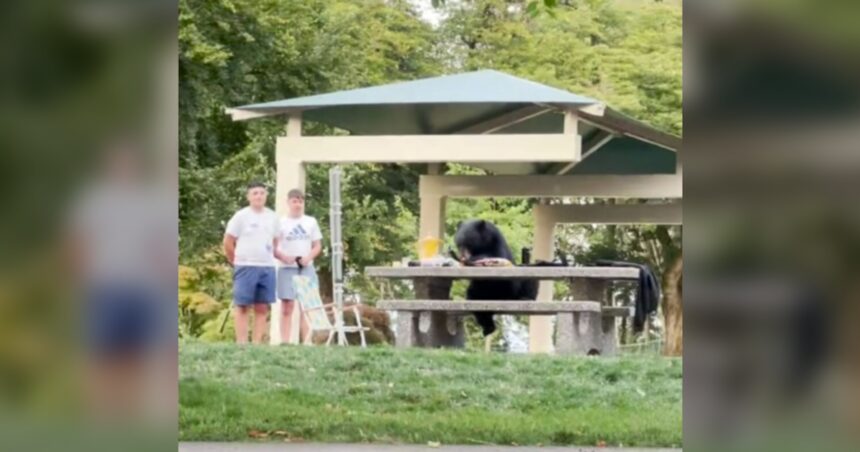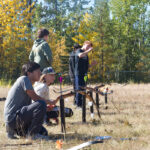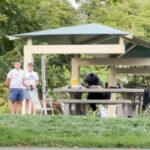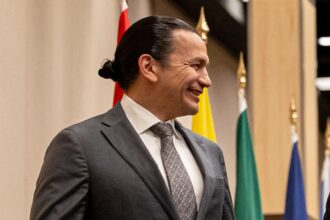In a development that has stirred significant public reaction, British Columbia conservation officers have euthanized a black bear that gained social media fame after a series of close encounters with humans in Burnaby Mountain Park. The bear, which had become recognizable to locals through viral videos showing its increasingly bold behavior, was dispatched Thursday following what officials described as an “escalating pattern of habituation.”
The decision came after multiple incidents where the bear demonstrated comfort approaching humans at dangerously close distances. In one widely-shared video, the animal was seen casually walking alongside hikers on park trails, seemingly unfazed by their presence. Another recording showed the bear investigating picnic areas while people retreated to their vehicles.
“When wild animals lose their natural wariness of humans, it creates an unacceptable public safety risk,” explained Senior Conservation Officer Melanie Thompson. “This bear had become so accustomed to human food sources that rehabilitation was no longer considered viable.”
The BC Conservation Officer Service had initially attempted aversion techniques and increased public education efforts about proper food storage and waste management in the park. However, the bear continued to seek out human food, with reports of it approaching occupied picnic tables and even following hikers who carried food.
Wildlife biologist Dr. Robert Chen told CO24 News that the situation illustrates a troubling but common pattern. “Once bears associate humans with easy food access, that behavior is extremely difficult to reverse. People who feed bears, intentionally or through carelessness, are essentially signing that animal’s death warrant.”
The euthanization has sparked debate among local residents and wildlife advocacy groups. The Burnaby Wildlife Coalition expressed disappointment that relocation wasn’t attempted, while park officials maintain that relocated food-conditioned bears typically return to populated areas or create similar problems in new locations.
Burnaby Mountain Park has seen an uptick in bear encounters this year, which experts attribute to a combination of poor natural food availability and increasing recreational use of wilderness areas. City officials have responded by installing additional bear-proof garbage containers and increasing signage about wildlife safety.
“This situation represents the unfortunate consequence of human-wildlife conflict in expanding urban areas,” noted urban planning expert Priya Sharma. “As our cities continue growing into previously wild spaces, these encounters will only increase without proper management strategies.”
The Ministry of Environment has reminded park visitors that feeding wildlife is prohibited under provincial regulations and carries potential fines up to $100,000. They’ve also launched an enhanced education campaign encouraging people to properly secure food and garbage when in bear country.
As communities throughout British Columbia continue negotiating the complex relationship between expanding human settlement and wildlife conservation, this incident raises a crucial question: How do we balance our desire to experience nature up close with our responsibility to keep wild animals truly wild?






















